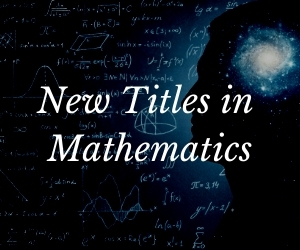System Upgrade on Tue, May 28th, 2024 at 2am (EDT)
Existing users will be able to log into the site and access content. However, E-commerce and registration of new users may not be available for up to 12 hours.For online purchase, please visit us again. Contact us at customercare@wspc.com for any enquiries.
Vol. I: Introductory Calculus, Analysis of Functions of One Real Variable
Vol. II: Differentiation and Integration of Functions of Several Variables, Vector Calculus
Vol. III: Measure and Integration Theory, Complex-Valued Functions of a Complex Variable
Vol. V: Functional Analysis, Some Operator Theory, Theory of Distributions
In the part on Fourier analysis, we discuss pointwise convergence results, summability methods and, of course, convergence in the quadratic mean of Fourier series. More advanced topics include a first discussion of Hardy spaces. We also spend some time handling general orthogonal series expansions, in particular, related to orthogonal polynomials. Then we switch to the Fourier integral, i.e. the Fourier transform in Schwartz space, as well as in some Lebesgue spaces or of measures.
Our treatment of ordinary differential equations starts with a discussion of some classical methods to obtain explicit integrals, followed by the existence theorems of Picard–Lindelöf and Peano which are proved by fixed point arguments. Linear systems are treated in great detail and we start a first discussion on boundary value problems. In particular, we look at Sturm–Liouville problems and orthogonal expansions. We also handle the hypergeometric differential equations (using complex methods) and their relations to special functions in mathematical physics. Some qualitative aspects are treated too, e.g. stability results (Ljapunov functions), phase diagrams, or flows.
Our introduction to the calculus of variations includes a discussion of the Euler–Lagrange equations, the Legendre theory of necessary and sufficient conditions, and aspects of the Hamilton–Jacobi theory. Related first order partial differential equations are treated in more detail.
The text serves as a companion to lecture courses, and it is also suitable for self-study. The text is complemented by ca. 260 problems with detailed solutions.
Sample Chapter(s)1. The Historical Place of Fourier Analysis in Mathematics
Contents:
- Fourier Analysis:
- The Historical Place of Fourier Analysis in Mathematics
- Trigonometric Series and Fourier Series
- Fourier Series and Their Coefficients
- Pointwise Convergence and Summability
- Fourier Series of Square Integrable Functions
- Further Topics on the Convergence of Fourier Series
- Holomorphic Functions, Harmonic Functions, Hardy Spaces
- Selected Topics on Fourier Series
- Orthonormal Expansions and Special Functions
- The Schwartz Space
- The Fourier Transform in S(ℝn)
- The Fourier Transform in Lp-Spaces
- The Fourier Transform of Bounded Measures
- Selected Topics on the Fourier Transform
- Ordinary Differential Equations:
- Some Orientation — First Results
- Basic Existence and Uniqueness Results I
- Basic Existence and Uniqueness Results II
- Linear Systems of First Order. Constant Coefficients
- Linear Systems of First Order. Variable Coefficients
- Second Order Linear Differential Equations with Real Analytic Coefficients
- Boundary Value and Eigenvalue Problems. First Observations
- The Hypergeometric and the Confluent Hypergeometric Differential Equation
- Continuous Dependence on Data and Stability
- Tangent Spaces, Tangent Bundles, and Vector Fields
- Phase Diagrams and Flows
- Introduction to the Calculus of Variations:
- The Calculus of Variations — Setting the Scene
- Classical Solutions of the Euler–Lagrange Equations
- More on Local Minimisers
- Partial Differential Equations of 1st Order
- Aspects of Hamilton-Jacobi Theory
- Appendices:
- Harmonic Analysis on Locally Compact Abelian Groups
- Convergence of Measures
- Generating Functions, Orthonormal Polynomials
- On Brouwer's Fixed Point Theorem
Readership: Undergraduate students in mathematics, studying fourier analysis, ODEs, calculus of variations.

























